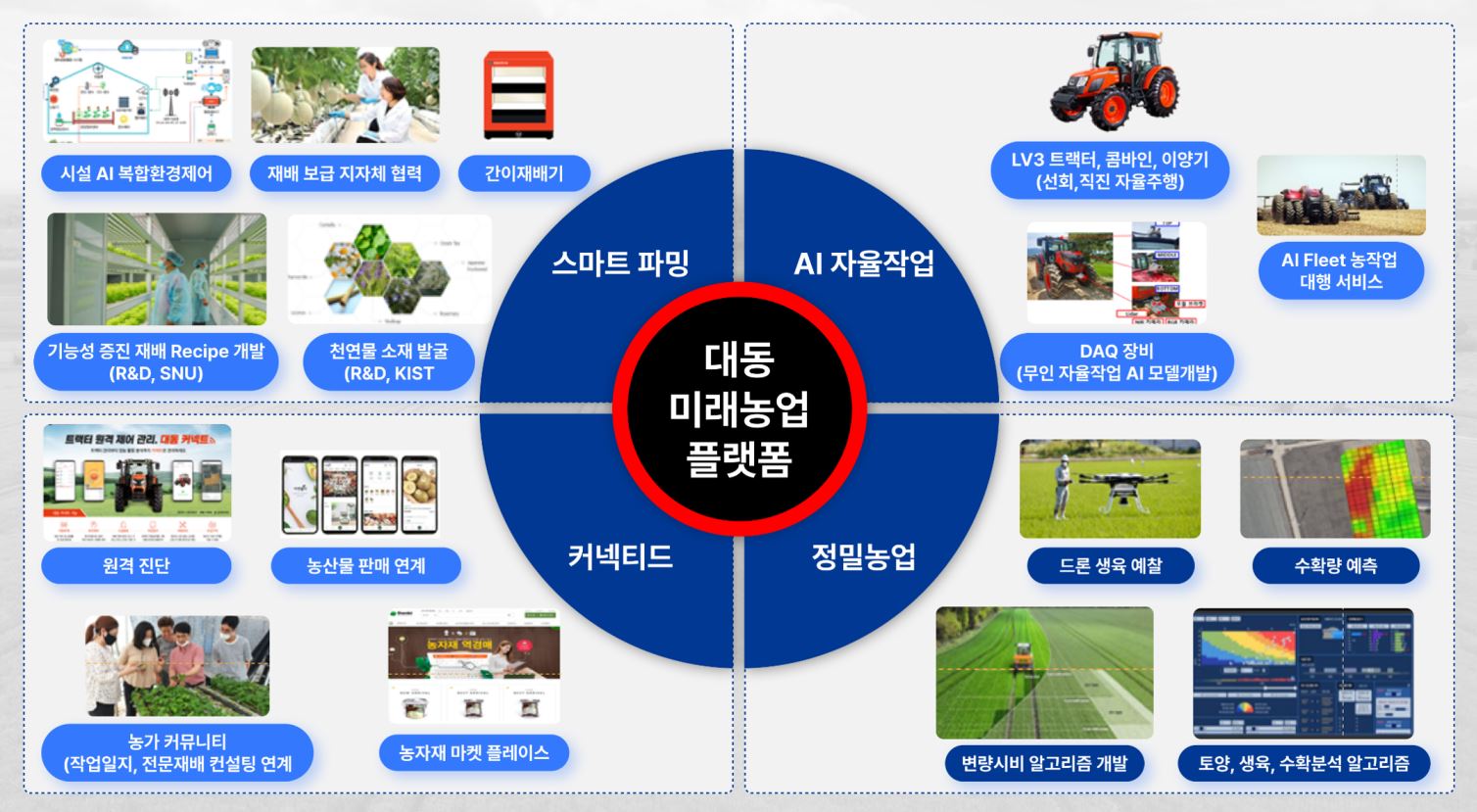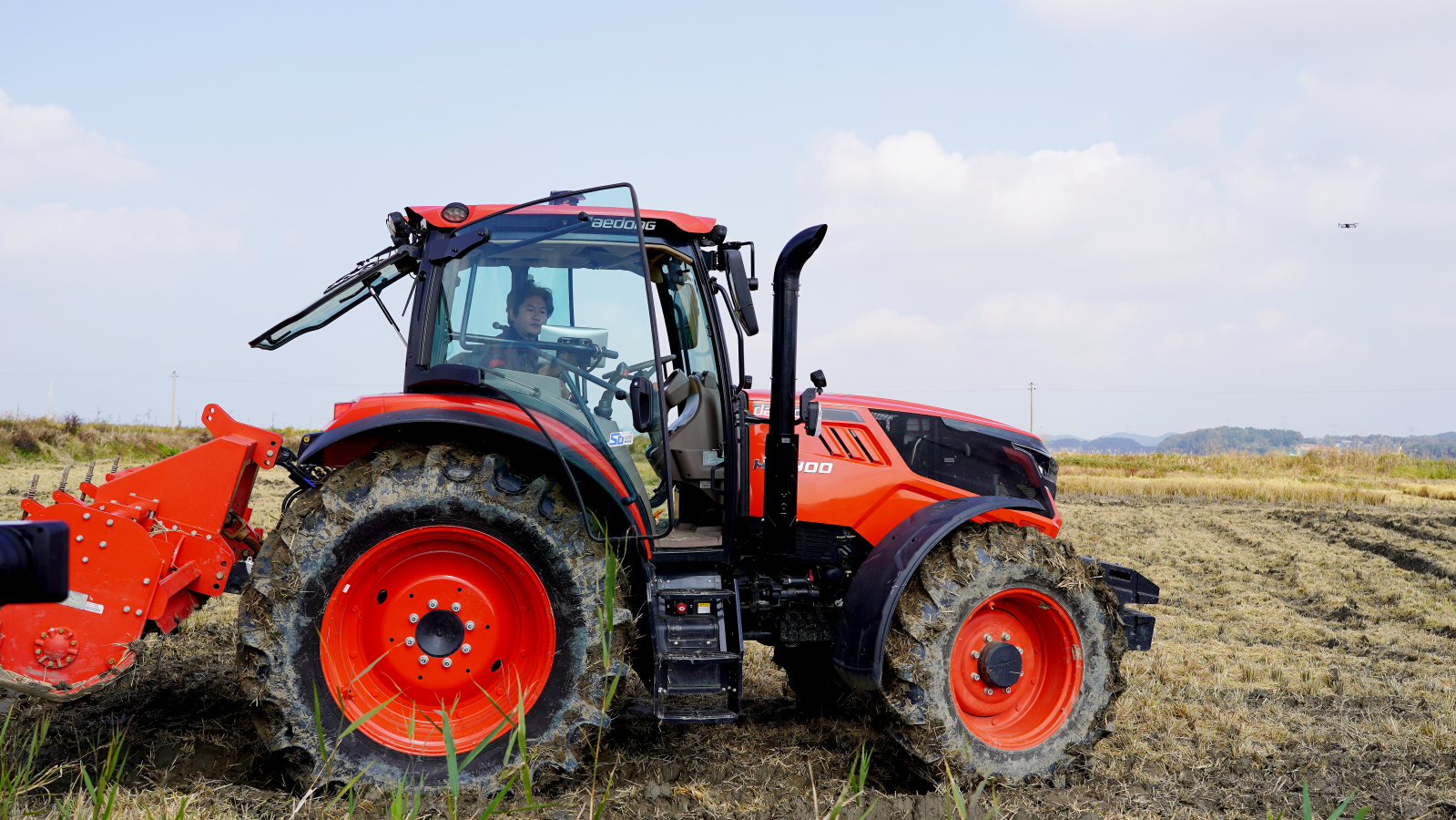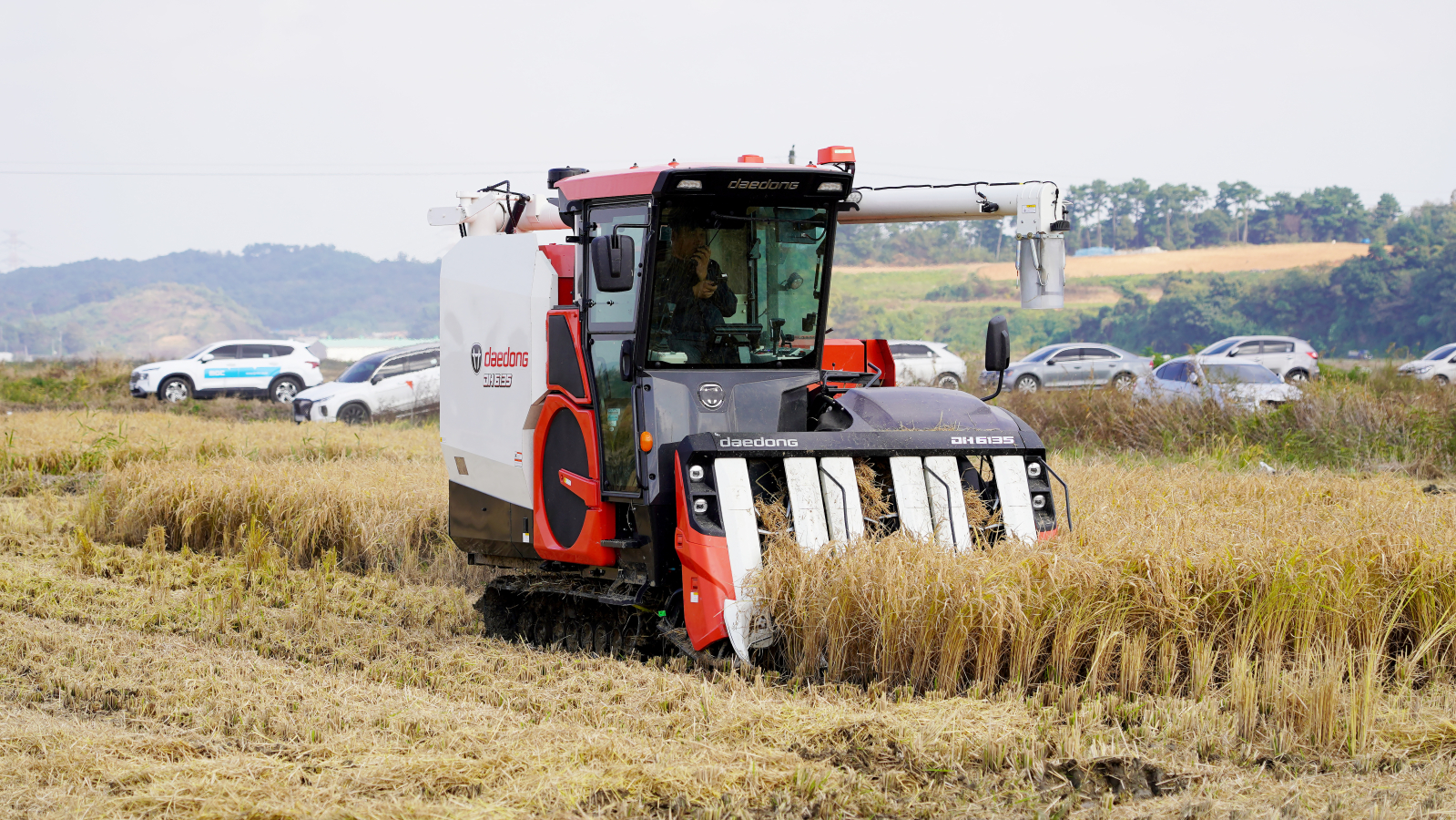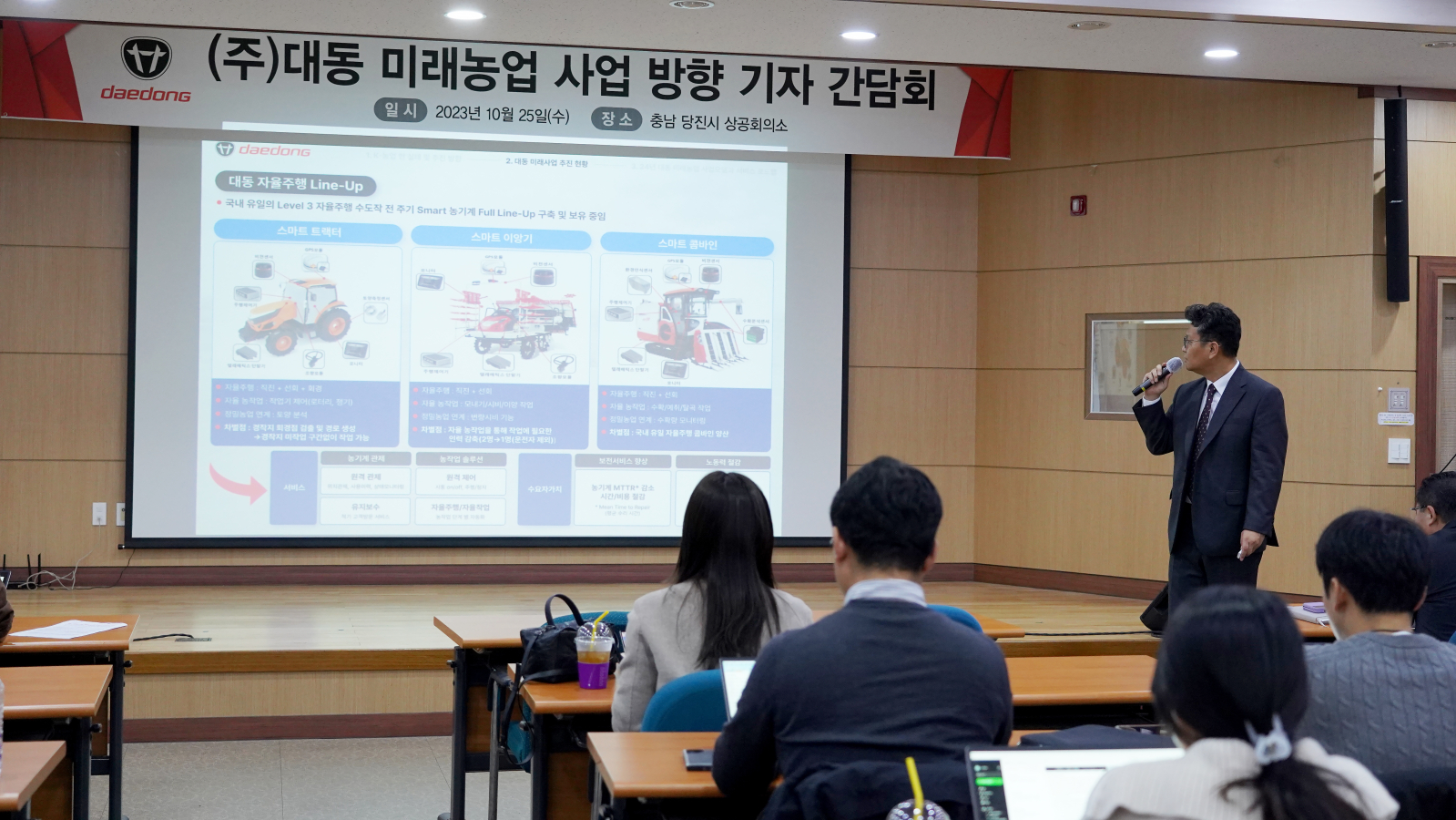Daedong pushing for “smart rice farming” using autonomous agricultural machinery and high-precision agriculture technology
Daedong pushing for “smart rice farming” using autonomous agricultural machinery and high-precision agriculture technology
- Company completes its lineup of autonomous agricultural machinery required for rice paddy farming. Proves its concept with a successful 3-year rice farming pilot
- Daedong is now set to share its “smart rice farming” model with large farms, agricultural corporations, and institutions looking to maximize efficiency and productivity
- Company develops robots and precision agriculture technology required to install “smart” systems in fields and orchards, pushing the transition to solution and platform-driven agriculture
Daedong is pushing to turn open-field agriculture into a bona fide “smart” industry using future agricultural technology.
Daedong Group's future ag-tech platform subsidiary Daedong (Co-CEOs Kim Jun-sik and Won Yu-hyun) announced on October 26 that is ready to share its AI-powered autonomous agricultural machinery and precision rice farming services developed as part of its future business model with the domestic agricultural market in order for “smarter” rice farming. The company has its eyes on rice, an important crop in open-field agriculture.
Daedong previously declared its 20-year vision of becoming a “leader in future agriculture,” and is currently pursuing four core future projects: “Smart agricultural machinery” that works autonomously and remotely instead of people; “Smart farm” that provides growth recipes (solutions) for regular and functional crops; “Smart mobility” as new means of movement and transportation; and “Specialized service robots” for agricultural/non-agricultural applications. Moreover, the company is developing its own agricultural solution platform, the “Daedong Connect” app, so that anyone can get easy access to its future business products and services.

As part of its future business, Daedong launched new autonomous agricultural machinery required for smart rice farming solutions in the fourth quarter of this year, and created a pilot service model for precision farming in rice paddies. The company established a full lineup of autonomous driving rice transplanters, tractors, and combine by launching its new HX tractor and DH6135 combine. These two models are the first of their kind in Korea to adopt autonomous driving and operating functions on par with Level-3 autonomous driving for agricultural tractors and combines, which are essential in rice paddy farming. These two products are expected to minimize farmer fatigue and improve work efficiency by allowing agricultural machinery to automatically create and follow work routes while performing various tasks autonomously without any input from operators. Moreover, Daedong expects that even novice farmers will be more than able to enjoy results similar to those of experienced farmers skilled in operating agricultural machinery.
Precision agriculture service for rice farming uses agricultural big data, and the goal is to provide solutions that can deliver maximum returns by investing the least amount of resources throughout the entire farming cycle, which consists of plowing (cultivating the land), preparing the soil (leveling the ground), transplanting (planting rice), fertilizing (spraying fertilizers), pest controlling (spraying pesticides), and harvesting. For three years from 2021 to 2023, Daedong collected data from over 100 rice paddies (total 188 acres) over their entire farming cycles, offered customized solutions, and analyzed changes in yield. Based on the analysis of soil composition in 53 fields, customized solutions for specific the type and amount of fertilizer needed were provided to participating farms. Upon planting the seedlings, photos were taken once a month and the crops were analyzed to determine how much additional fertilizer is required for each field. When compared to spraying fertilizer based on the farmers' past experience, the average amount of fertilizer usage was reduced by 6% and the rice yield improved by 18%.

In order to help farmers understand the changes in yield and collect data to provide more advanced rice farming solutions, the new DH6135 combine features a “yield monitoring function” available through the Daedong Connect app. Using this function, farmers can select between 4m, 8m, and 10m units (width x height) of farmland in the Connect app, then check the grain yield for each section after harvest. The data can help optimize fertilization (fertilizer spraying) and pest control (pesticide spraying) in line with how much the crops have grown.
Daedong plans to distribute autonomous agricultural machinery and precision rice farming service pilot models to large farmers, corporate farmers, and private agricultural agencies that own and cultivate large-scale rice farmland or perform agricultural work on behalf of farmland owners. Additionally, the company plans to offer an “agricultural agency service” on the Connect platform that connects farmers in need of someone to work their fields. Moreover, in cooperation with local governments and regional agricultural cooperatives, Daedong is looking to promote a cooperative project to package autonomous agricultural machinery and precision agricultural services and deliver them to local farmers.
To this end, the agricultural agency market is growing due to the decline in the agricultural population stemming from the rapid aging of farming communities, and faster consolidation of agriculture. In fact, municipal governments are taking care of an increasingly wider area of rice paddies. In 2012, local governments cultivated, transplanted, controlled pest infestations, and harvested rice across 196,000ha of land, but this went up 22% by 2020 to 239,000ha in total. The share of rice paddies worked by governments has also gone from 22% of all available rice paddies in 2012 to roughly 33% in 2020. The number of agricultural corporations increased by approximately 12% from 21,800 in 2018 to 24,500 in 2020, and the size of corporate-controlled farmland also increased by approximately 6% from 7,000ha in 2018 to 7,600ha in 2020.In addition, with local governments bolstering their large-scale local agriculture projects to improve their competitiveness in agriculture, such as the “Deulnyok Special Agricultural Zone Project” in Gyeongsangbuk-do, the scale at which large farms and corporate farms grow rice is expected to increase further. Accordingly, there will be a greater need in the domestic agricultural market for autonomous agricultural machinery capable of working much more efficiently and conveniently. Precision farming services that can increase harvests with fewer resources in the same area are also to enjoy a spike in popularity going forward.

Meanwhile, Daedong demonstrated its autonomous agricultural machinery at 940, Saseong-ri, Dangjin-si, Chungcheongnam-do, and shared its future business direction at the Dangjin Chamber of Commerce on October 25. At the demonstration, which began early in the morning, Daedong employees showed the audience how the company's autonomous tractors, rice transplanters, and combines with Level-3 autonomous driving technology worked. The tractor was used for rotary work, whereas the rice transplanter was used to plant rice crops autonomously. The combine was then used to harvest the rice. Additionally, Daedong showcased a new drone diagnostics service and yield monitoring technology for precision rice farming. During the presentation session in the afternoon, Na Yeong-jung, Head of the AI Platform Division, gave a presentation on Daedong's four major future agriculture platform businesses: Precision Agriculture, AI-driven Autonomous Operations, Connected Solutions, and Smart Farming. Here, Daedong shared its vision and direction for “smart rice farming” for the future.

